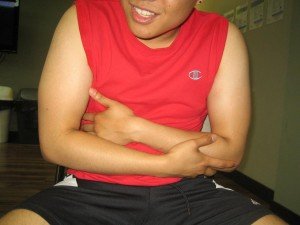An individual who is allergic to nightshade vegetables might end up with a skin rash. The usual culprits include peppers, potatoes and tomatoes. It is important to note that an allergy to nightshade vegetables is uncommon.
After consuming nightshade vegetables, it is vital to note down any undesirable side effects that might arise and set an appointment with a doctor. The common skin conditions linked with nightshade vegetables include hives, eczema and contact dermatitis.
How does an allergic reaction arise?
When an allergic reaction occurs, the immune system of the body malfunctions and wrongly identifies foods as a threat. After consuming or directly handling nightshade vegetables, the body overly reacts to the substances in the vegetables and initiates the production of antibodies that fight off the allergen.

These antibodies trigger other chemical reactions that result to the inflammation and irritation in the soft tissues. Histamine is one of the chemicals released by the soft tissues to protect the body from detrimental substances. It is chemical responsible for inflammation and irritation once released throughout the body.
What are the types of reactions?
There are 3 forms of skin reactions that can occur with an allergic reaction to nightshade vegetables.
- Contact dermatitis is a skin rash characterized by generalized inflammation and itchiness after direct exposure to nightshade vegetables. After touching the vegetable, the skin turns blotchy, irritated and inflamed as a response to the elevated histamine levels in the skin.
- Hives might arise in varying sizes and shapes. They are characterized as flattened tops with clearly defined borders. This form of skin rash can manifest, vanish and reappear for no evident reason. It is typically safe unless they develop in the ear or throat.
- Eczema is a type of skin rash that might flare up if the individual ends up with an allergic reaction to the vegetables.
Management of the skin rash
It is recommended to use a topical steroid cream to calm a skin rash that arises after exposure to nightshade vegetables. Hydrocortisone can be used for minor allergic skin conditions or consult a doctor for prescribed corticosteroids for severe rashes.
An oral antihistamine can be used to lessen the common allergy symptoms as well as skin rashes that might arise during a reaction. The older variants of antihistamines such as diphenhydramine are more potent and work rapidly than the newer variants.
More Information / Disclaimer
The information posted on this page on skin rashes due to nightshade vegetables is for learning purposes only. Learn to recognize the indications by taking a standard first aid course with Saskatoon First Aid.
